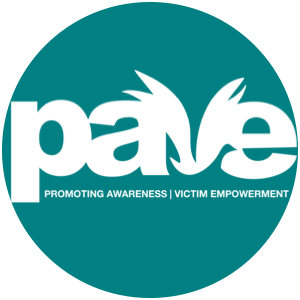Kik, Omegle, and Digital Platforms that Elevate Abusers
TW: sexual abuse, child abuse & exploitation
We live in the age of social media, where digital platforms are specifically geared towards connecting people from all over the globe. While these are ground-breaking tools that have connected the world like never before, these platforms can also be used for harm and often give a platform to sexual predators.
Online websites and apps such as Kik and Omegle are overtly guilty in doing so. Kik is a Canadian messenger app that is known for preserving the anonymity of its users. Instead of entering a phone number or email address, users simply pick a username and are able to enter public group chats at their will, along with private messaging.
Omegle is slightly different from Kik, and is essentially an online chat room in which users can connect either over text or video. The platform pairs two strangers together, and users can even input their specific interests to tailor the conversation.
Both apps have an overwhelming problem with the amount of predators who use these platforms to target and sexually exploit children. After the arrest of a sexual offender in 2015, police found that the man was an avid user of Kik and belonged to over 200 group chats that were solely dedicated to the trading, sharing, and selling of child abuse material. The problem on Kik is so pervasive it has even been coined as a “predator’s paradise” by police and child safety experts (Brewster, 2017).
Omegle is equally as guilty in platforming abusers, and often, the apps are used hand-in-hand by these predators. They will match with children on Omegle, and force the conversation over to Kik, where they will then groom children and demand sexually explicit images and videos from the child victims.
BBC reported this past February that one of these child victims (coined “Alice” in the article for anonymity) is now 21 and suing Omegle for being complicit in matching her with the pedophile who digitally groomed and abused her for years (Tidy, 2023). Unfortunately, Alice’s case is not unique, but if the lawsuit is successful, it could aid in holding these platforms accountable and give strength to other victims to come forward about their own stories.
The developers and companies behind these apps are excruciatingly complicit in not curbing the predatory behavior that has been allowed on their platforms, and have had essentially little to no repercussions in regards to their complacency. In response to the aforementioned lawsuit, Omegle’s legal team has claimed “the website is not to blame for what happened to Alice and denies that it is a haven for predators”, despite the website being involved in over 50 pedophile cases in the last two years alone (Tidy, 2023). The only additional measure the website has implemented since the lawsuit has been a check box that states the user is over 18 years old, which is clearly not sufficient, and if anything, is just a measure to ensure the company is not liable for any further lawsuits.
There is a similar lack of accountability when it comes to Kik, and in an article by Forbes, the report found that the app was neglecting to ban/delete the profiles of users convicted of child exploitation charges (Brewster, 2017). The CEO of Kik, Ted Livingston responded in a statement and essentially shifted the blame from the app and its contents to its users, many of whom are children and do not know that these interactions are inappropriate. Livingston encourages to either block, report, or ignore messages from people the user does not know (Brewster, 2017).
Obviously, these platforms are not the only social media sites that house predators, but there is something to be said about their complacency, and the amount of predatory activity that is rampant on each app. Growing up with the existence of these apps and using them at a crucial time in mine and my peers' development has absolutely had a lasting impact on my own life and the way I present myself on my own social media accounts. I myself have been a victim of child predators because of these platforms and it is not uncommon for people my age to have also been targeted, this behavior is exactly what these websites are known for.
Ultimately, the responsibility to keep users safe relies on the companies behind these apps. It is difficult to hold these digital platforms accountable, and it is much easier for the creators and developers of these platforms to shift the blame on to the user. They warn parents to monitor the online behavior of their children, ask users to block and report predators, and argue they are not responsible for the actions of those who use their apps for harm. However, these digital platforms need to be held accountable and take responsibility for the amount of harm their apps have exposed children to.
Written by: Summer 2023 Intern - Cora Gordon
Sources:
https://www.bbc.com/news/technology-64618791
https://www.forbes.com/sites/thomasbrewster/2017/08/03/kik-has-a-massive-child-abuse-problem/
